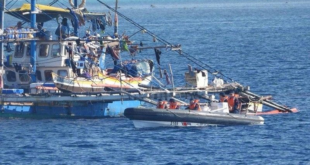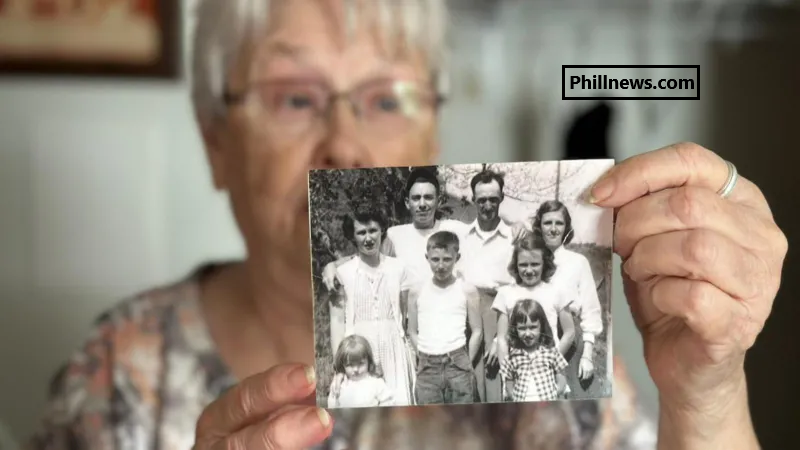
Days after a tropical storm caused catastrophic flooding in areas of North Carolina, killing dozens and leaving hundreds missing, whole towns are grappling with terrible losses and, for some, tight escapes.
Nancy Berry’s trailer in Boone served as her mountain retreat and family home for almost 40 years.
It was where she made memories with family and friends while also preserving the memory of those who had passed away. Her mother died in the same trailer.
But it just took a few hours for Hurricane Helene to wipe it all away.
Now, the 77-year-old is attempting to save what remains. On her bed, still damp from the floodwaters, she has laid souvenirs of who she was and where she came from.
On top of the pile is her son’s death certificate from three years ago, when he died of Covid.
“I grabbed it and laid it out,” she explained to the BBC. “I need to safeguard my family’s history. However, most of it is lost.
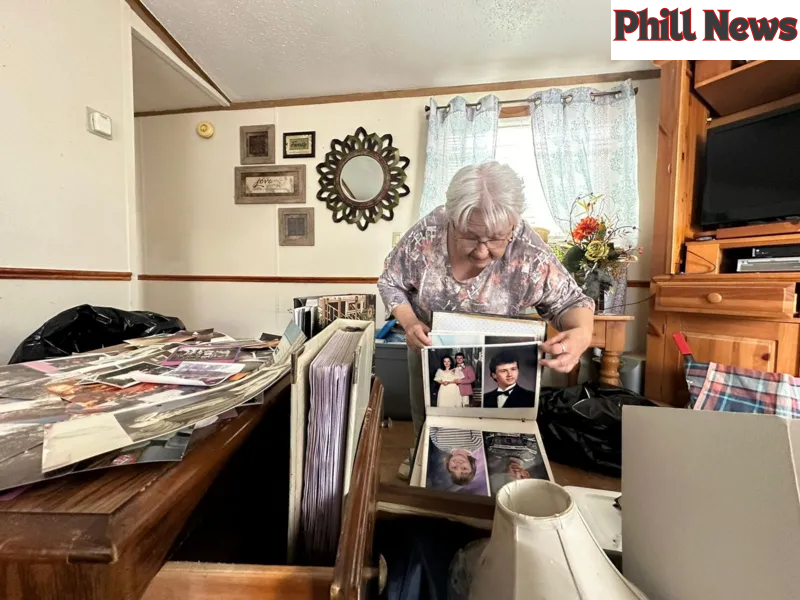
Ms Berry’s great-niece rescued her, guiding her through three to four feet of water.
“They kept contacting me; thank God for cell phones. Ms Berry recalled: “You never know what would have happened a long time ago.”
When her great-niece came, she saw Ms Berry attempting to conserve some of her items by storing them high up.
“I’m Aunt Nanny. Come on. Get out. “Get out,” she said.
“I’m coming, I’m coming!” Ms. Berry answered. She grabbed her pocketbook and handed it to her great-niece, who carried it over her head as she assisted Ms Berry to safety.
“She’s strong, and she was just pushing me, pulling, and that water was -,” Ms Berry claimed, shuddering. “It was not a nice moment.”
As floodwaters increased, people on her block had to be rescued by boat.
Ms Berry’s homeland is a rather tranquil hamlet nestled between mountains, with a population of around 20,000.
Its terrain is characterized by streams and rivers that run beneath tall green trees that reach into the heavens.
It is also home to Appalachian State University, which has transformed one of its buildings into an emergency shelter for storm victims.
Communities like this one may be quite secluded, situated along a gravel road on a mountainside. Such characteristics enhance Boone’s beauty, but also its fragility.
Local reports indicate that two persons have died in Watauga County.
According to Kathie Dello, a climate researcher at North Carolina State University, storms are not uncommon in Western North Carolina, which is more than 300 miles (482 kilometers) from the coast.
Six people were killed when a tropical storm triggered “catastrophic” floods in neighboring Carusoe – but nothing like this, she claimed. At least 180 individuals have perished. Over 600 people remain missing. Thousands are without electricity, and freshwater supplies are depleting.
The government has sent 6,000 National Guard soldiers and 4,800 federal relief workers to the area, but many have criticized the response, claiming that the majority of rescue attempts have been left to volunteers.
“We were cut off from [the outside world] for about three days,” said Kennie McFee, the fire chief in Green Valley.
“Here, it was mainly neighbors helping neighbors.”
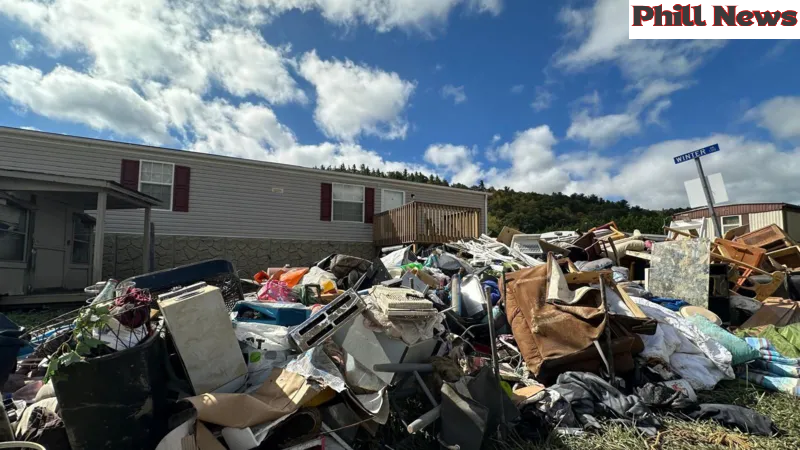
Although Asheville and Boone were severely affected, Diello told the BBC that isolated towns tucked away in the heart of the Appalachian Mountains are also having severe difficulties.
The Wi-Fi and cellphone reception were spotty even before the storm. The challenges individuals have had leaving have been exacerbated by poverty and unpaved, rural routes.
People frequently ask, “Well, why didn’t they leave?” according to Diello. Perhaps you are unable to pay for a full tank of petrol, and how many nights would you need to stay in a safer hotel? Perhaps you are aware that you are unable to leave your work or your family.
Five days after the storm, a lady in Green Valley who wished to remain anonymous to the BBC said that she was still without power and had not been able to get in touch with anybody outside her family.
She claimed that a battery-operated antenna radio that was decades old was the only gadget she had that worked.
“If you’re raised in the mountains, you’ll cope,” she stated.
An automobile arrived with news about her relatives who lived down the road as she was speaking with the BBC. Since the hurricane, she had not seen or heard from them.
“They were all okay, another thank you, Lord,” she said.
The woman stated she’d seen terrible storms before, but she’d never seen anything like Helene.
Another house entirely crushed less than five minutes’ walk from where she stood in her driveway.
“People are becoming more aware of God. Not only here, but all over the place, he is truly capturing people’s attention,” she said. “But I think it’s just, it’s to let us know who’s in control.”
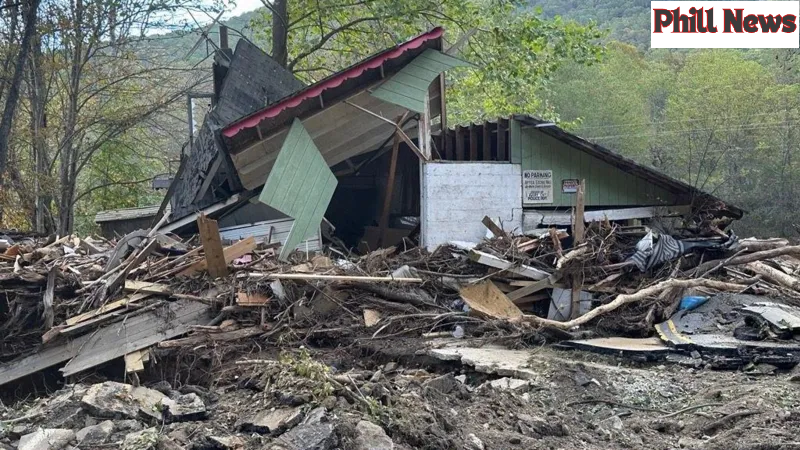
Nicole Rojas, 25, recently moved to her remote home in the mountains of Vilas, North Carolina, from nearby Tennessee, where she had been living “off the grid.”
“I kind of wish I had stuck to that lifestyle a bit more because I always had drinking water, showering water, and food,” she told the BBC while searching for supplies in Boone.
Now, Nicole and her roommates—including a 54-year-old woman named Karen, Karen’s 74-year-old mother, and a family with young children—are facing weeks without power. The only road in and out of their area is a single-lane, littered with fallen trees.
“The only reason I was even able to get out was because some gentlemen in the community used their chainsaws and tractors to clear the trees,” Nicole explained.
She had been at home on Friday when the storm hit the mountain. On Sunday, after her neighbors spent all of Saturday clearing the road, she and Karen made it into town. Karen, who had suffered a life-threatening allergic reaction after an insect sting during the chaos of the storm, returned home with supplies.
Nicole stayed in Boone with friends to go to work at a local health store. She plans to return home with more supplies on Wednesday.
It was while she was at work that the emotional impact hit her, after hearing a customer’s story.
“She had to drive by a truck that was carrying bodies, and she started crying,” Nicole recalled. “And that’s when I just broke down.”
“You hear everyone’s horror stories—how their entire house slid down the mountain.”
“I feel like I just survived the apocalypse.”
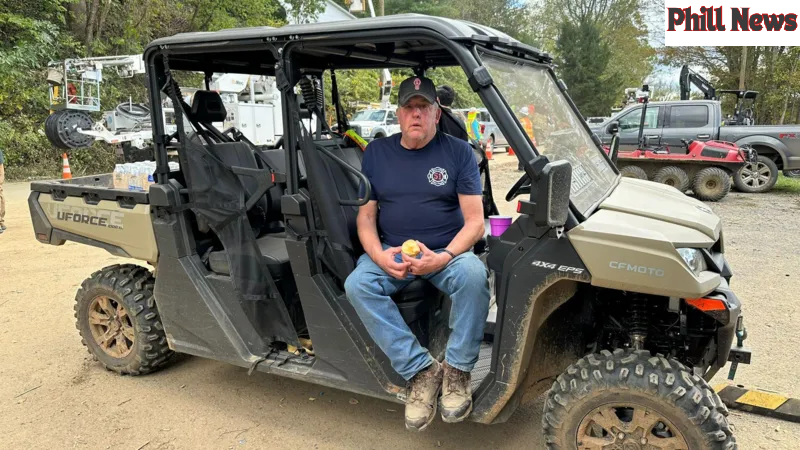
 Phill News Entertainment – Phill News
Phill News Entertainment – Phill News
